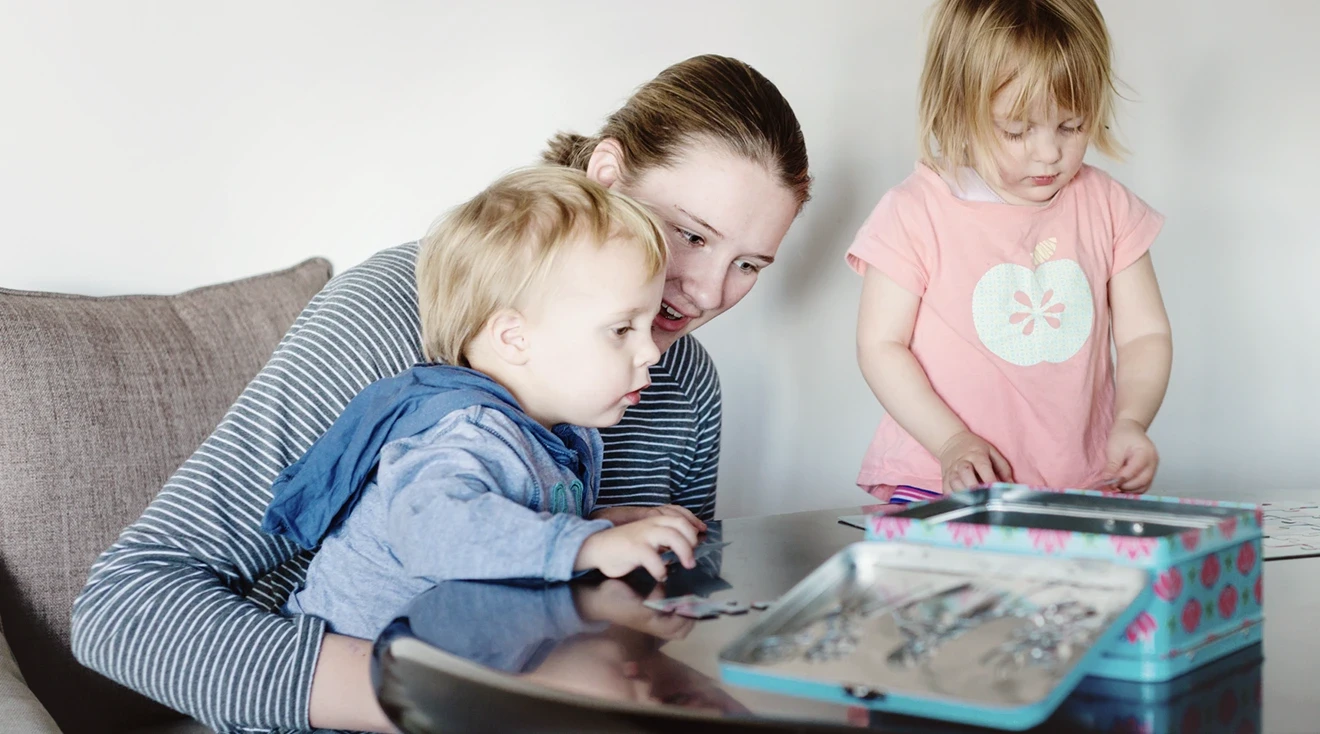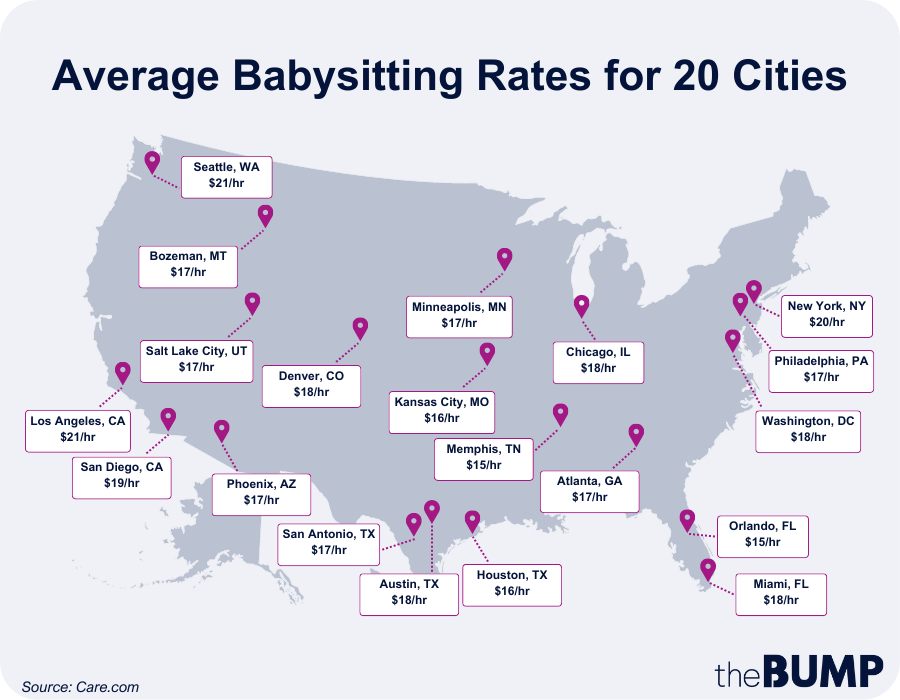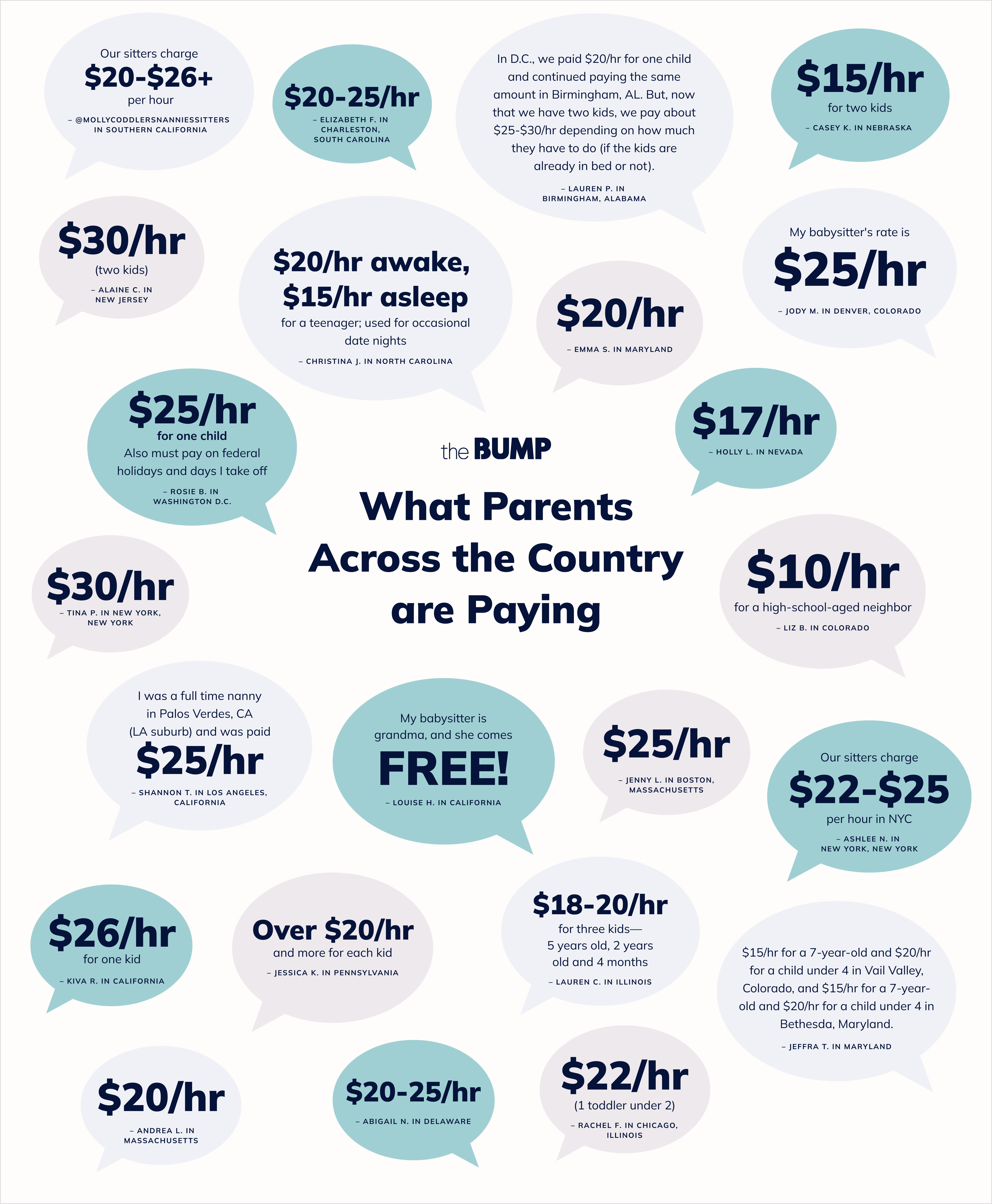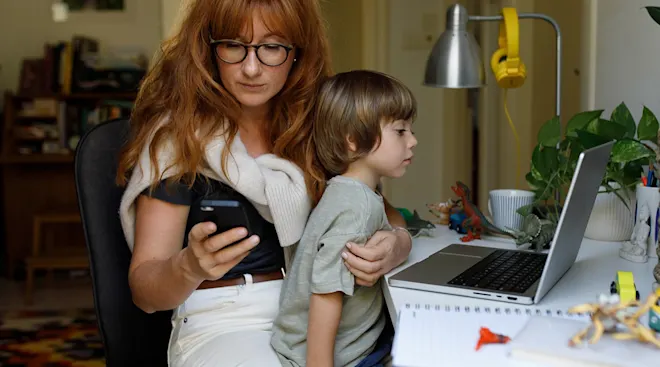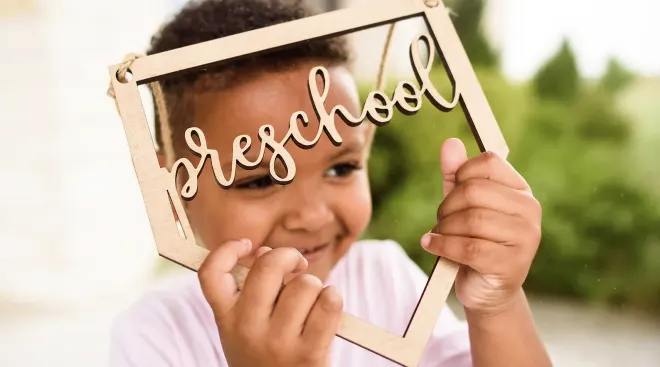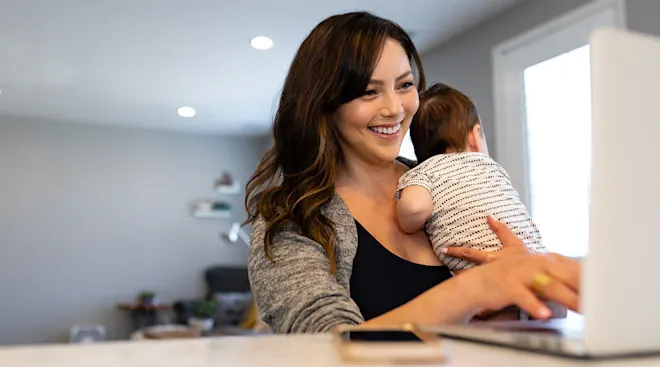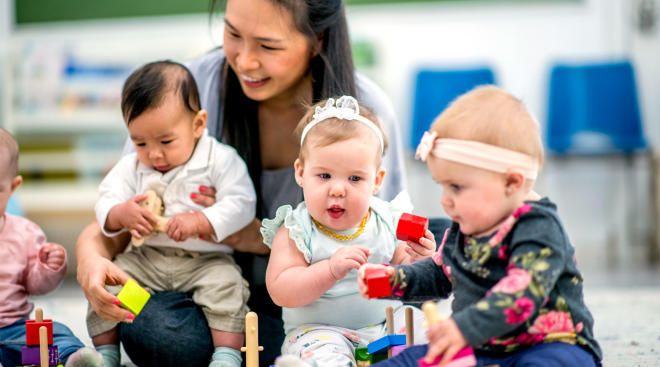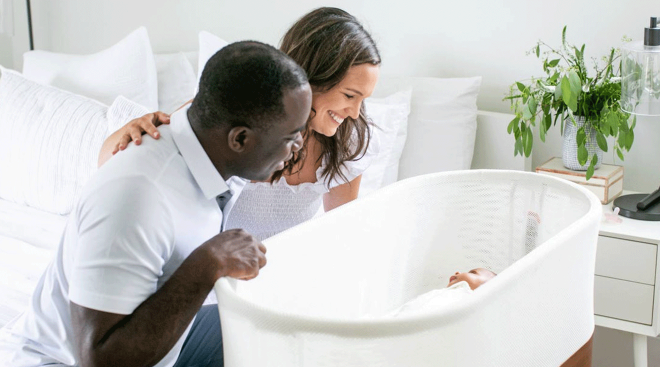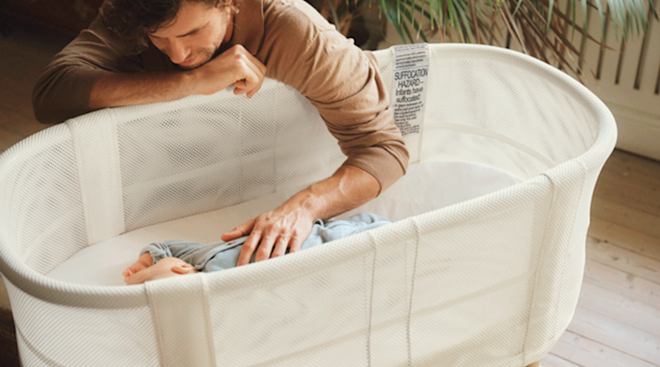How to Find a Great Babysitter (and What to Pay Them)
Finding a great babysitter can feel like finding a needle in a haystack. With all of the options out there—online and in person—it can be difficult to know where to even start. Luckily, we’re here to help. Whether you’re looking for a sitter who you can count on to pick up your kiddos after school, offer help with your infant or watch your children during date night, we’ve got you covered. Here, check out our top tips for every step of the way, from where to look to what to prep before the first session. Plus, discover how using an online service like Care.com can make the process even smoother.
“Finding a babysitter these days is a serious time commitment and struggle for parents,” recognizes Maressa Brown, senior editor at Care. “Parents will want to make a game plan before entering the current babysitting landscape—one that’s ripe with stiff competition and even sitter stealing,” she continues. All that’s to say it’s not uncommon to feel overwhelmed at the prospect of finding a babysitter for your family. But don’t worry—we’ve got you covered. Below, check out our tips to bring you one step closer to find the best caregiver for your little one(s) and to give you some well-deserved child-free time.
Personal recommendations
While parents can begin their babysitter search in a variety of ways, it’s most common for them to turn to their inner circle (think: Family, friends and neighbors) for referrals, says Brown. Ask loved ones and pals which sitters they’ve used and liked to weed out those who will (and wouldn’t) work. Brown also mentions that social media networks and online groups—like Facebook or Nextdoor—could also offer great local sitter recommendations.
Of course, just because a sitter was recommended to you doesn’t mean they’ll be the right one for your family. For example, you might feel nervous about a 14-year-old caring for your preemie, even if you know their family well. With that in mind, ask lots of questions about the potential babysitter before you call to scope them out. Plus, don’t feel pressured to hire a sitter just because they were recommended by someone you know.
Organizations you trust
Moms on The Bump message boards say they often hire their babies’ daycare teachers or the people who care for the kids during services at their places of worship or other community centers—and Brown agrees. Why? Well, a lot of the time those organizations do background checks and require specific training, such as infant CPR. (Of course, you’ll want to double-check with the organization to be sure.) Another bonus: Your child already knows those people, so they’ll probably feel more comfortable with them from the get-go.
Babysitting apps and websites
Parents may turn to an app or website to find a standout sitter. Online platforms have come a long way over the years—there are any number of services that not only connect parents to sitters, but also provide background checks and testimonials from other families. For parents wanting to learn more, we’ve tested the best babysitting apps and websites on the market and identified most useful ones.
Found a few potential babysitters? Next, you’ll want to interview them to see who’s the best fit for your family’s needs. “Interviews give parents the opportunity to not only gauge if the sitter will be a good fit personality-wise with the family, but also to confirm that the sitter’s skills match the job at hand so parents can make a confident decision about the person they choose to care for their children,” explains Brown. She advises parents to thoughtfully prepare questions ahead of time, ranging from basics on childcare experience to more in-depth ones related to the job’s duties.
To take interview questions a step further, get into specifics. Brown suggests creating scenario-based questions. “For example,” she says, “what would you do if my kid fell off the swings on the playground?” Based on the answer, you’ll have a clearer idea of how the sitter would handle situations while they’re on the job.
“Above all else, my best advice for parents while interviewing babysitters is to follow their instincts; don’t ignore any red flags you sense during the conversation,” advises Brown. To help you identify positive (and negative) qualities in babysitters, look for the signs below to figure out whether they’d be a good hire.
-
They have good references. Wondering whether or not you should ask a sitter for references? Brown says: “Absolutely. Just like any other hiring process, it’s fair and encouraged to ask for a babysitter’s references.” Once they provide them, actually call the references to see what feedback they have about the person and ask about past performance, professionalism and skill sets for added verification. Brown adds that “a sitter who’s unable or hesitant to share references should be a red flag to parents.”
-
They have training. According to Brown, while not required, training is definitely an advantage when it comes to choosing a babysitter. “Learning about if a sitter has completed any trainings or courses in CPR, water safety or infant and childcare will give peace of mind to parents that a sitter is ready to handle emergency situations,” she explains. After all, you want baby to be in the safest hands possible. So, what if they don’t know anything about CPR or first aid? You might want to suggest the sitter take a class or two. Even better, pay for the classes yourself or offer a slightly higher hourly rate if they complete them—it’s a win-win for you both!
-
They interact well with your child. Some parents hire a babysitter after a short interview and maybe a brief meet and greet with baby. However, if you have even a teeny bit of uncertainty, it’s worth the peace of mind to do a “sitter trial.” During this session, the babysitter and your child can spend time together while you’re still at home. “Doing this will give parents a chance to see the sitter’s style, like how the sitter follows instructions, handles situations and, most importantly, interacts with the child,” states Brown. This is where parental intuition comes in—trust your instincts. (And yes, the sitter should be compensated for this, whether or not you plan to hire them afterwards.)
-
Your child likes them. Another tip: If your child is verbal, get them involved in this process. After the trial, Brown suggests asking your kiddo about their time spent with the babysitter and if they’d like to see them again. This way, you’ll have insight into how comfortable your child feels in their care.
Once you find the right sitter, the next step is figuring out what to pay them. Brown advises parents to “be conscious of their budget and the going rates for sitters before starting their search.” According to Care’s 10th Annual Cost of Care Report the national average cost of a weekly babysitter is currently $179 (which is up 92% from $93 in 2013).
However, rates will vary based on your location, the sitter’s experience, how many children you have and any other specific duties the job entails, like transportation, meal prep or dog walking, Brown adds. Use Care’s convenient Cost of Care Calculator to look at average rates for sitters in your area. To get a better idea of what parents nationwide are paying for their caregivers, we asked real moms and dads to share their experiences. Here’s what they said:
Congrats! You’ve hired a babysitter—now what? Before they arrive for their first sitting session, make sure you have the following prepped for a seamless experience:
-
Ground rules. Before your babysitter starts, be sure they know your expectations, so everyone’s on the same page from the start. Brown recommends that parents prepare a list of key house rules ahead of the first session. Some examples could be your child’s screen time limits, or letting your babysitter know that no visitors are allowed to the house while you’re not there; it’s entirely up to you!
-
Emergency contact information. You’ll want to provide emergency contact information, just in case. Fill out this emergency information checklist and set it out so they have access to all the important contacts all in one place.
-
Routine. Brown suggests creating a rough schedule that details your child’s routine—like meal and bed times—for the sitter’s first visit. This way, they’ll have a clear idea of what’s expected of them to do and when.
-
House tour. If your sitter isn’t familiar with your home, Brown recommends setting aside time at the beginning of the job so they know where everything is. For example, if you have an infant or toddler, it’s important that they know where the diapers and clothes are kept. What’s more, they might need help figuring out how to work the TV, oven or other essential appliances in your home.
-
Meals. If the job falls during a meal time, Brown suggests that parents prep instructions ahead of time. You could provide your sitter the ingredients and a recipe to cook something for your child, leave pre-made or frozen food with heating instructions or provide money for take-out.
-
Specific tips. One more way to set your sitter up for a successful night is to provide specific tips. These could include what TV shows and movies your kiddo likes, or their favorite toys and stuffed animals, Brown says.
Once the babysitter has arrived and you’ve checked off everything on your list—you’re good to go. Enjoy your time off! You deserve it.
Plus, more from The Bump:
Maressa Brown, is a senior editor at Care.com. Her writing has appeared on Yahoo, Parents, SELF, Washington Post, InStyle, Shape, What to Expect, PopSugar and many other outlets. Brown is also the author of the forthcoming book “Raising Baby by the Stars: A New Parent’s Guide to Astrology.”
Care.com, This is how much child care costs in 2023, June 2023
Learn how we keep our content accurate and up-to-date by reading our medical review and editorial process.
Navigate forward to interact with the calendar and select a date. Press the question mark key to get the keyboard shortcuts for changing dates.

































